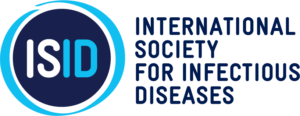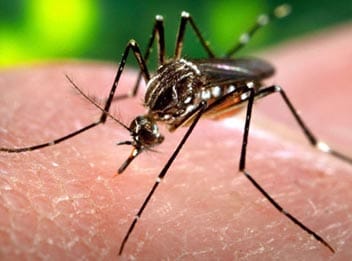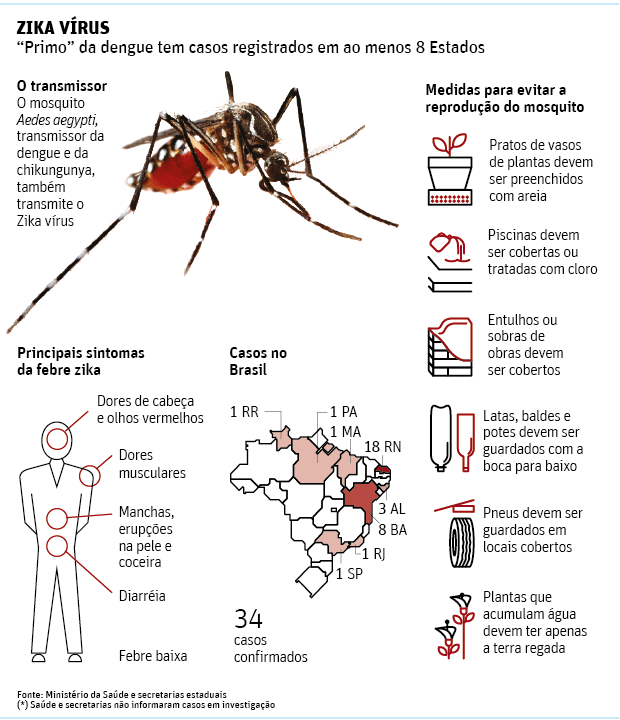Published Date: 2015-02-09 16:52:03
Subject: PRO/EDR> Undiagnosed illness - Brazil: (MA) RFI
Archive Number: 20150209.3152894
UNDIAGNOSED ILLNESS - BRAZIL: (MARANHAO) REQUEST FOR INFORMATION
************************************************** **************
A ProMED-mail post
http://www.promedmail.org
ProMED-mail is a program of the
International Society for Infectious Diseases
http://www.isid.org
Date: Wed 4 Feb 2015
Source: Caxias [a report of the Caxias city government, Maranhao state, in Portuguese, summ & trans. Mod.TY, edited]
An outbreak of a viral disease causing fever, red rash over the body, and joint pain is keeping the Caxias health authorities on alert. The Municipal Secretary of Health is now aware of the outbreak and is commenting about hundreds of [affected] people in the municipality.
According to the Secretary of Health, Vinicius Araujo ... provided a note stating, "Regarding the viral disease outbreak that is occurring in the city, it is not reported as chikungunya fever. All the serological tests conducted by LACEN (reference diagnostic laboratory for tropical disease of the Ministry of Health in Sao Luis) up to now have been negative.
We have requested that the State Secretariat of Health send technicians to our municipality to carry out virus isolation to clarify which virus could be circulating. The teams should be arriving in the coming week [week of 9 Feb 2015].
--
Communicated by:
ProMED-PORT
[As is always the case, absence of information concerning time, people, and place makes detailed discussions concerning the apparent outbreak of this acute, febrile, rash disease in Maranhao state difficult. Dengue and chikungunya certainly are the main suspected agents to be investigated.
The current scenario, [diagnosis] depends on better clinical and demographic characterization; measles and rubella must be considered, although one would not expect "hundreds of people" affected in a period time (not specified), without any suspicion. Other possibilities, although less likely, include: parvovirus, enterovirus, Oropouche (previously described in Maranhao (see "1st register of an epidemic caused by Oropouche virus in the states of Maranhao and Goias, Brazil. Rev Inst Med Trop Sao Paulo. 1989; 31(4):271-8 -- Portuguese).
Caxias is the 5th largest city in the state of Maranhao, with a population of 155 129 inhabitants and an area of 5 150 667 sq. km [1 988 684 sq mi] - Mod.RNA [in Portuguese, trans., summ. - Mod.TY
In addition to Oropouche, Mayaro virus is another possible virus to rule out. ProMED-mail will be very interested in receiving the results of the investigation and, especially results of any virus isolations. Blood samples could be sent to the Evandro Chagas Laboratory in Belem, for diagnostic serology to rule out Oropouche or Mayaro virus infections.
Subject: PRO/EDR> Undiagnosed illness - Brazil: (MA) RFI
Archive Number: 20150209.3152894
UNDIAGNOSED ILLNESS - BRAZIL: (MARANHAO) REQUEST FOR INFORMATION
************************************************** **************
A ProMED-mail post
http://www.promedmail.org
ProMED-mail is a program of the
International Society for Infectious Diseases
http://www.isid.org
Date: Wed 4 Feb 2015
Source: Caxias [a report of the Caxias city government, Maranhao state, in Portuguese, summ & trans. Mod.TY, edited]
An outbreak of a viral disease causing fever, red rash over the body, and joint pain is keeping the Caxias health authorities on alert. The Municipal Secretary of Health is now aware of the outbreak and is commenting about hundreds of [affected] people in the municipality.
According to the Secretary of Health, Vinicius Araujo ... provided a note stating, "Regarding the viral disease outbreak that is occurring in the city, it is not reported as chikungunya fever. All the serological tests conducted by LACEN (reference diagnostic laboratory for tropical disease of the Ministry of Health in Sao Luis) up to now have been negative.
We have requested that the State Secretariat of Health send technicians to our municipality to carry out virus isolation to clarify which virus could be circulating. The teams should be arriving in the coming week [week of 9 Feb 2015].
--
Communicated by:
ProMED-PORT
[As is always the case, absence of information concerning time, people, and place makes detailed discussions concerning the apparent outbreak of this acute, febrile, rash disease in Maranhao state difficult. Dengue and chikungunya certainly are the main suspected agents to be investigated.
The current scenario, [diagnosis] depends on better clinical and demographic characterization; measles and rubella must be considered, although one would not expect "hundreds of people" affected in a period time (not specified), without any suspicion. Other possibilities, although less likely, include: parvovirus, enterovirus, Oropouche (previously described in Maranhao (see "1st register of an epidemic caused by Oropouche virus in the states of Maranhao and Goias, Brazil. Rev Inst Med Trop Sao Paulo. 1989; 31(4):271-8 -- Portuguese).
Caxias is the 5th largest city in the state of Maranhao, with a population of 155 129 inhabitants and an area of 5 150 667 sq. km [1 988 684 sq mi] - Mod.RNA [in Portuguese, trans., summ. - Mod.TY
In addition to Oropouche, Mayaro virus is another possible virus to rule out. ProMED-mail will be very interested in receiving the results of the investigation and, especially results of any virus isolations. Blood samples could be sent to the Evandro Chagas Laboratory in Belem, for diagnostic serology to rule out Oropouche or Mayaro virus infections.






Comment